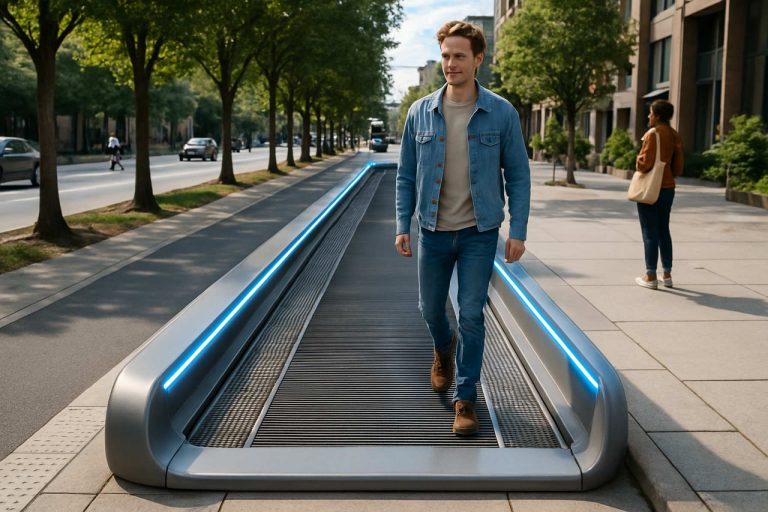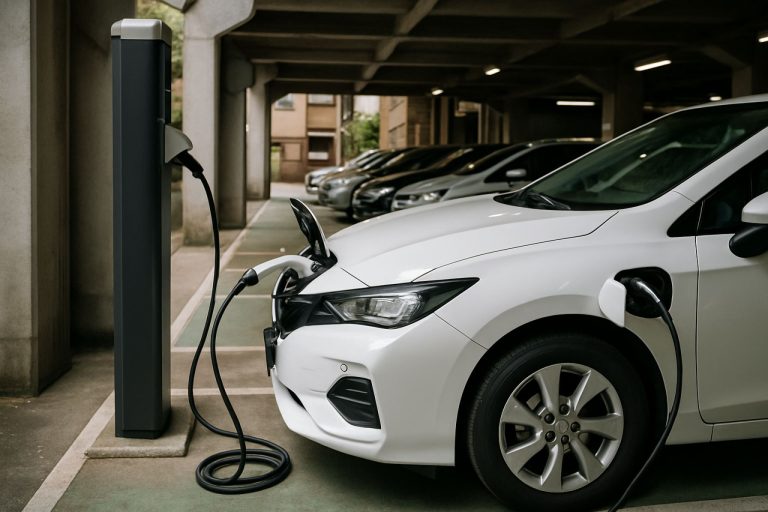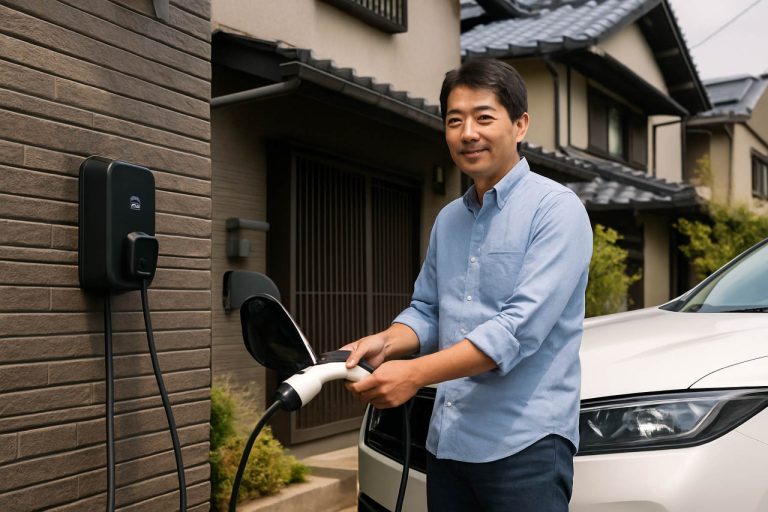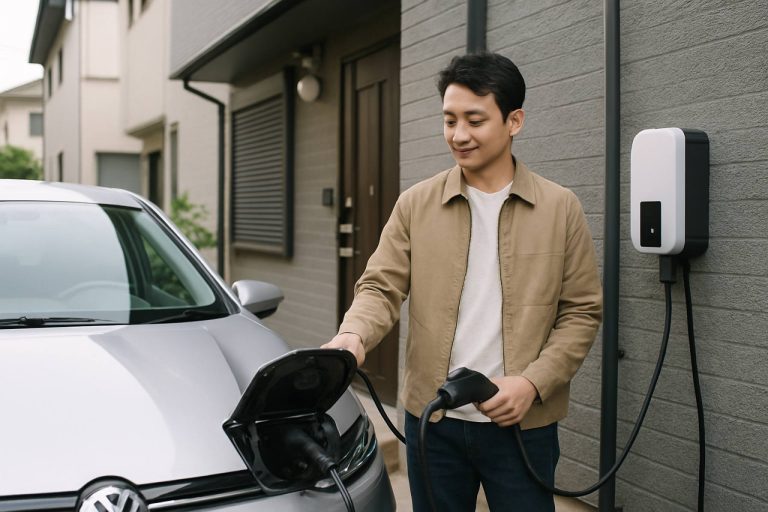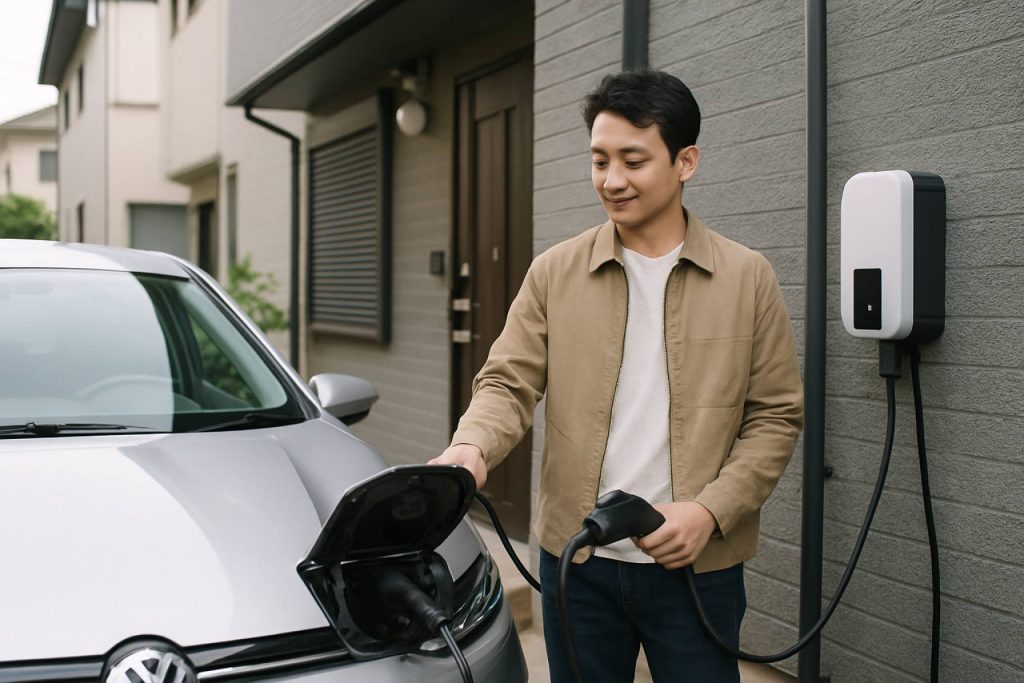
- Jigowatts offers affordable, fully installed 6kW EV chargers for Tokyo’s detached homeowners at just 29,999 yen, backed by a metropolitan incentive program.
- The heavy-duty JW-EVSE-6KI-055-PIYO charger provides much faster charging than standard outlets, featuring a 5.5m (or optional 8m) cable and smart communication functions.
- This initiative removes historic cost and installation barriers, making electric vehicle ownership more accessible and attractive in Tokyo.
- Eligibility is exclusive to detached homes; rebate applications and full support are handled by Jigowatts for a seamless experience.
- The limited-time campaign runs from June 27, 2025, to March 31, 2026, or until stock lasts—potentially transforming Tokyo’s residential landscape and advancing Japan’s progress toward sustainability goals.
Tokyo’s residential streets, once lined with rows of traditional homes, now stand at the edge of a quiet revolution. A new offer from pioneering tech company Jigowatts points toward the city’s cleaner, electrified future: fully installed, high-output electric vehicle (EV) chargers—at a cost almost anyone can justify.
Picture coming home in the evening, plugging in your car with a simple gesture, and waking to a fully charged vehicle—all while sidestepping the sticker shock typical of home charging solutions. Jigowatts, headquartered in Chuo City, is unleashing its industrial-grade JW-EVSE-6KI-055-PIYO charger for a remarkable 29,999 yen to owners of detached houses across Tokyo. Notably, this opportunity hinges on a metropolitan incentive program, which further underscores Japan’s push to accelerate electric mobility adoption.
Heavy-Duty Tech, Scaled for Home Use
At the core of the deal is the new model’s muscle: a charging unit capable of delivering up to 6kW—significantly more than what’s typically available at standard home outlets. That power means swifter charging, particularly valuable for busy families or professionals on the go. The supplied cable stretches a generous 5.5 meters (with an upgrade to 8 meters for those who need extra reach), accommodating most home garage layouts.
Communication functions come built-in, letting homeowners check charge status and receive updates, a nod to the growing expectations for smart, connected infrastructure.
Sweeping Away Old Barriers
Historically, the cost and installation of dedicated EV charging equipment have discouraged homeowners from making the electric leap. The new initiative, underpinned by Tokyo’s “Promotion Project for Charging Equipment in Detached Houses,” aims to knock down this wall—making EV ownership genuinely attainable rather than aspirational. The cost advantage is compelling compared to both Western and other Japanese markets, reflecting Tokyo’s drive to be a global sustainability leader.
Who and How
Eligibility centers on detached homes in Tokyo’s metropolitan area—apartments and shared dwellings do not qualify, ensuring direct and simple installations. Once applicants pay the initial costs for the charger, they can apply through Tokyo’s program for a rebate, slashing the final outlay to the headline-grabbing price.
Jigowatts manages every step, from securing the proper electrical work to supporting paperwork, making the experience seamless for newcomers to electric vehicles.
The plan launches from June 27, 2025, and runs until March 31, 2026—or until stock runs out. Given the pent-up demand among would-be EV owners, the window may close quickly. Interested homeowners can apply directly via the Jigowatts official website.
The Takeaway
This move signals far more than a discount; it’s an invitation to join Tokyo’s next wave of energy-conscious living without the financial strain. For citizens considering electric mobility, this limited-time offer could be the turning point—transforming not just how Tokyoites drive, but how they relate to the future of their city.
With Japan’s major cities racing to meet ambitious emissions goals and support from all levels of government, programs like this could reshape the country’s energy narrative, one driveway at a time. For Tokyo’s homeowners, the power to change the streetscape is now at their fingertips.
For the latest on green innovation and tech, explore Nikkei—Japan’s trusted news source.
Tokyo’s EV Charger Revolution: Everything You Need to Know (And Why You Should Act Now)
Tokyo’s Bold New Electric Future for Homeowners
Tokyo stands at the forefront of a quiet—and potentially game-changing—evolution in home electric vehicle (EV) charging. Jigowatts, a notable tech innovator, has thrown open the doors for everyday homeowners to access heavy-duty, industrial-level charging at a fraction of the historic cost. But what does this mean in practice, and what should Tokyo residents consider before jumping in? This expert deep dive explores the real-world implications, market forecasts, and actionable tips to help you decide if this offer fits your lifestyle and boosts your home value.
—
Additional Fast Facts That Matter
– Ultra-Competitive Pricing: At 29,999 yen (about $200 USD, as of June 2024), Jigowatts’ charger is over 70% less expensive than typical high-output home chargers in developed EV markets. By comparison, similar units in the US or Europe often cost $700–$2,000 before installation (Source: CleanTechnica).
– Spec Overview: The JW-EVSE-6KI-055-PIYO model delivers 6kW AC charging—enough to add approximately 30–40km of range per hour for modern EVs, significantly faster than standard 100V outlets (1.5kW max).
– Smart Features: The unit supports remote monitoring via app—not only viewing charging status but potentially scheduling charges for off-peak electricity rates.
– Full-Service Installation: The price includes site inspection, professional installation, and city-required certification, ensuring maximum user safety and peace of mind.
– Warranty and Compliance: Jigowatts states the charger comes with manufacturer warranty (typically 3 to 5 years in Japan), and models are compliant with relevant Japanese safety standards (PSE-mark certified).
– Government Partnerships: This initiative dovetails with Tokyo’s 2050 Zero Emissions goal and its policy to ban new gasoline-only vehicle sales by 2035 (Source: Japanese Ministry of Economy, Trade and Industry).
– Grid-Friendly Integration: The product supports future enhancements such as V2H (Vehicle-to-Home) or V2G (Vehicle-to-Grid) compatibility as these technologies roll out.
—
How-To: Securing Your Jigowatts EV Charger
1. Check Eligibility: You must own a detached house within Tokyo’s metropolitan limits.
2. Visit the Jigowatts Website: Register interest and schedule a site survey.
3. Complete Application: Pay the initial cost and gather documents needed for the Tokyo metropolitan rebate program.
4. Installation by Certified Electricians: Jigowatts schedules installation and manages all paperwork.
5. Apply for Rebate: Submit completed documents for the incentive to Tokyo Metropolitan Government.
6. Plug and Charge: Enjoy fast, reliable home charging and real-time monitoring features via the Jigowatts app.
—
Life Hacks & Real-World Use Cases
– Flexible Cable Lengths: Upgrade to the 8m cable if your parking spot isn’t directly beside your house entrance.
– Energy Savings: Set your charger for late-night operation (if your utility offers time-of-use pricing) to benefit from lower tariffs.
– Home Value Boost: Real estate experts in the US and UK report that EV charger-equipped homes can command up to 2% higher selling prices (Source: Zillow, Rightmove).
– Disaster Readiness: With grid-integrated chargers, your EV could serve as a home-power backup during emergencies—a growing trend in disaster-prone regions.
—
Reviews & Comparisons
– Jigowatts vs. International Rivals: While Tesla’s Wall Connector offers similar specs, installation and base cost are typically over $1,200 in Japan. Most domestic alternatives, such as those offered by Panasonic or Nissan, remain above 100,000 yen even with subsidies.
– User Satisfaction: Japanese customer reviews praise Jigowatts’ end-to-end service and easy, Wi-Fi-enabled setup (Source: customer insights via Nikkei).
—
Controversies & Limitations
– Detached Homes Only: Apartment and condominium dwellers are not eligible—still a challenge in dense Tokyo, where 60% of residents live in such dwellings (Source: Tokyo Metropolitan Government).
– Stock and Timeline: Limited units—if the offer is oversubscribed, late applicants may miss out. The grant window ends March 2026 or when inventory runs out.
– Electric Panel Compatibility: Older homes may require panel upgrades, which could add extra (non-subsidized) costs.
– Rebate Delays: Rebates may take weeks or months to process, temporarily increasing your out-of-pocket cost.
—
Security, Sustainability & Industry Trends
– Data and Electrical Safety: Jigowatts incorporates encrypted smart features to guard against hacking. All electrical work is locally code-compliant and inspected.
– Eco Impact: By accelerating home charging ability, the city hopes to cut transportation CO2 emissions by over 30% by 2035 (Source: city of Tokyo pledge).
– Market Outlook: Japan’s EV charger market is projected to grow by 20% CAGR through 2030 as government policies and consumer demand rise (Source: Fuji Keizai market research).
—
Most Pressing Reader Questions—Answered
– Can I use this for all EV brands?
Yes. The charger uses the standard Type 1 (SAE J1772) connector, compatible with most Japanese and Asian EVs.
– Can I upgrade for more power in the future?
The 6kW limit is set for typical home circuits, but future models may support 200V/32A if your home’s panel allows.
– Is my home eligible for V2H or solar integration?
Consult with Jigowatts to discuss future-proof wiring during installation.
– Will renters benefit?
Only if you own the property. Renegotiate with landlords/management, as the program may expand.
– Are there ongoing subscription or maintenance fees?
None for basic functionality—extended monitoring or IoT features may require in-app upgrades.
—
Actionable Recommendations & Quick Tips
– Act Fast: With public funding and limited stock, early application is key to saving both time and money.
– Check Circuit Capacity: Have an electrician assess your home’s main panel—especially if it’s older than 20 years—to avoid unexpected costs.
– Schedule Installation During Off-Peak: Secure summer/fall slots before end-of-year demand spikes.
– Compare Offers: Visit resources like Nikkei for the latest on energy and EV tech trends in Japan.
– Future-Proof Your Investment: Ask about up-to-date firmware, solar integration, and V2H options at installation.
—
The Bottom Line
With game-changing pricing, streamlined installation, and post-purchase support, Jigowatts’ new offer turns barriers of Tokyo EV adoption into stepping stones. Detached homeowners can not only save money now, but also prepare for Japan’s coming electrified decade.
If you’re in Tokyo and looking to electrify your commute, this is the smartest time to get plugged in. Explore more at Jigowatts or keep abreast of Japan’s green tech shifts at Nikkei. Don’t let this quiet revolution pass you by!
